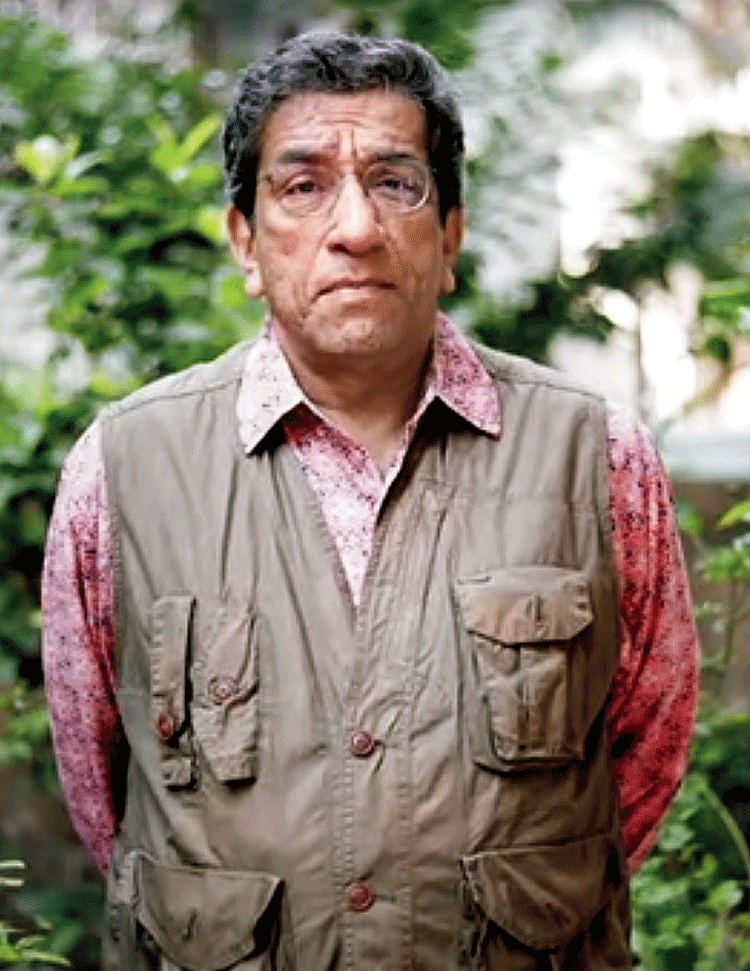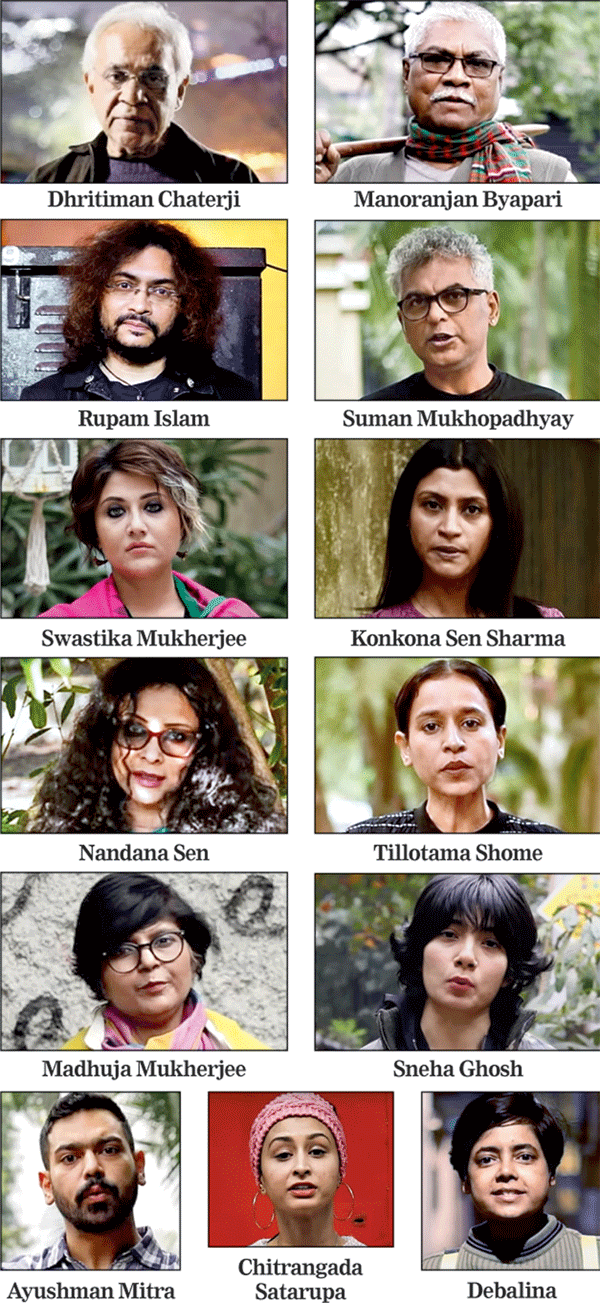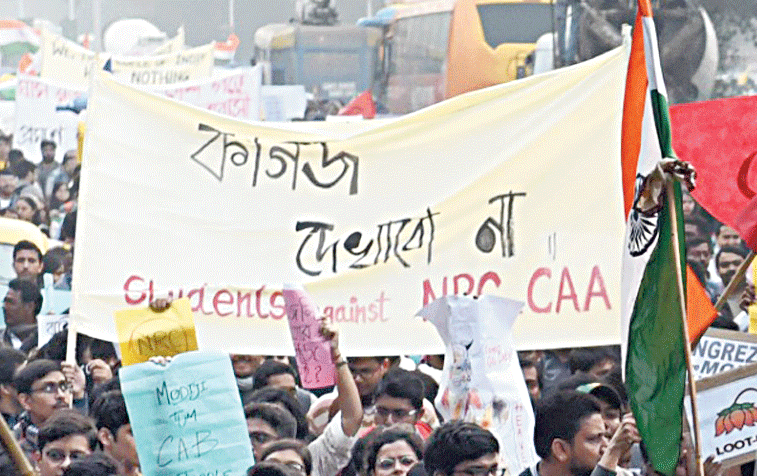
Sabyasachi Chakraborty in a still from the video

The Telegraph
Faces from the video
Aamra kagoj dekhabo na (We will not show our papers), several actors, a singer, a theatre and film director, a writer and an academic have chanted in a short video to protest the Citizenship (Amendment) Act and the National Register of Citizens.
The 87-second clip, uploaded on social media on Monday morning, has several famous faces reciting a Bengali translation of screenwriter, poet and stand-up comedian Varun Grover’s poem, Hum kaagaz nahin dikhayenge.
The video begins with actor Sabyasachi Chakrabarty and features Swastika Mukherjee, Konkona Sen Sharma, Dhritiman Chaterji, Nandana Sen, theatre and film director Suman Mukhopadhyay, writer-activist Manoranjan Byapari, singer Rupam Islam and the head of film studies at Jadavpur University, Madhuja Mukherjee, among others.
Each of them recites a few lines of the poem that has become an anthem of sorts in the countrywide protests against the CAA.
Grover had said the lyrics of the song were inspired by slogans on the streets of Calcutta. “Inspired by the spirit of every protester and India-lover. With hat-tips to Rahat Indori saab and the Bangla slogans,” he had tweeted while posting the poem on December 21.
The same day, tens of thousands of students marched through the heart of Calcutta armed with banners and posters that read: “Kagoj dekhabo na (won’t show papers)”.
“Shashok aasbe shashok jabey, kagoj aamra dekhabo na. Shoshok aasbe shoshok jabey, tobu kagoj dekhabo na (Rulers will come and go, we will not show our papers. Oppressors will come and go, we will still not show our papers),” actor Sabyasachi Chakrabarty recites at the start of the video.
The video was shot within three days, in Calcutta, Santiniketan and Mumbai.
“We wanted to do this with people in public life and requested them to recite a couple of lines. Not one of them had the slightest hesitation,” said Ronny Sen, a photographer and filmmaker who translated Grover’s poem and made the video with a “bunch of like-minded people”.
Sen, a Salt Lake resident, was allegedly attacked by a former neighbour with a dagger on December 28 for his social media posts against the CAA, NRC and the National Population Register. The attacker has been arrested.
The video, uploaded on Facebook, had garnered more than 1 lakh views by Monday night.
Author Manoranjan Byapari, one of the most powerful voices in literature and Dalit identity, said he would join any movement against the CAA-NPR-NRC, invited or not.
“Papers are just a ploy. The government has already made up its mind on who to exclude from the list. We are not going to fall into the trap and have decided not to show any paper at all,” Byapari told Metro.
In his inimitable baritone, thespian Dhritiman Chaterji utters the lines: “Mandir noy, masjid noy, desh jure chai azaadi (No temples, no mosques, we want freedom across the country).
Chaterji was at Park Circus Maidan — where thousands have been camping in the open for the past six days to demonstrate against the amended citizenship act — during the shooting of his part.
“A different idea of India is taking shape. People who do not agree to this idea are coming out to protest. What is heartening is that protesters comprise ordinary citizens, professionals and young people — people who are not political activists,” Chaterji said.
For director Suman Mukhopadhyay, carrying on with the protests is of utmost importance. “The movement should not fizzle out. The rulers are spending enormous amounts of money on social media propaganda. It is vital to resist them on social media. This video is a step in that direction,” he said.
Actress Nandana Sen said the song voices “simply and directly, our collective outrage at the widespread violence sweeping through our nation in response to the dangerously divisive regulations that are being instituted”.
Madhuja Mukherjee of JU said the war on social media was a seyane-seyane lorai (battle of equals). “We are not holding back our punches. The posters, posts and memes are giving it back to the ruling dispensation. Their narrative is one-sided and homogeneous. The counter-narrative is much more heterogeneous, it includes people from all walks of life, people whose affiliation is not necessarily with any political party.”

